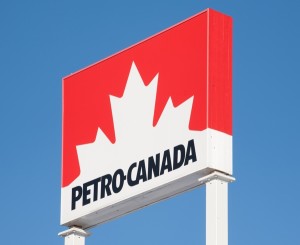The Canadian dollar touched a three week low versus the U.S. dollar on Wednesday as oil inventories surprised with a larger buildup in America and Canadian data disappointed. The economy shrank at an annual 1.6 percent rate in the second quarter, the worst in seven years, as energy exports were lower due to a drop in prices and the output disruption caused by the fires in Alberta. The upside was the monthly GDP figure that showed a 0.6 percent gain, above the 0.4 percent forecast.
Oil prices tumbled more than 3 percent after the Energy Information Administration (EIA) published crude inventories showing a buildup of 2.3 million barrels. Organization of the Petroleum Exporting Countries (OPEC) members and other producers are pumping at record levels despite falling prices. The OPEC meeting in Algiers at the end of September is anticipated to bring some news regarding an agreement between members to curb production or at the very least freeze it as the battle for market share has left prices stuck below $50. Supply is far exceeding demand for the black stuff which has benefited energy importers around the world, but even with storage solutions the growth in demand has not grown at the same pace.
The USD got a boost from the ADP payrolls report that came in at 177,000 jobs added well within the expected range. The emphasis of the Fed on employment figures heading into the biggest indicator in the foreign exchange market on Friday with the U.S. non farm payrolls (NFP) gave today’s release extra importance. While job gains appear to be more moderate, they are still strong validating the Fed’s view of a recovering economy that could lead to a rate hike sooner rather than later.

The USD/CAD lost 0.263 percent in the last 24 hours. The pair is trading at 1.3119 after a strong USD and a tumbling crude depreciated the loonie despite some positive signs of growth in the monthly GDP figures. The Canadian currency has been priced more for the external factors surrounding the economy than the mixed fundamentals.
The Canadian government is trying to reduce the economy’s dependancy on natural resources. A bold move that could accomplish this is to sign trade deals to diminish its U.S. dependancy. Prime Minister Justin Trudeau is in China to promote Canadian business and investment. The Canada-Germany ongoing negotiations could be derailed by a group of activist that wish to block them via the German constitutional court.

The price of West Texas oil fell 3.538 percent in the last 24 hours. Crude is trading at $44.30 after the U.S. inventories released by the Energy Information Administration (EIA) showed a bigger buildup than forecasted. Stockpiles rose by 2.3 million barrels in the last week and put downward pressure on the price of oil. The height of the driving season in the United States did little to stem the supply glut of crude as demand remains subdued.
The OPEC meeting in September could not come at a better time for producers as oil is close to erasing all the gains from the past two weeks. The Iraqi prime minister tried to offset the drop of crude with a somewhat committed statement towards an oil output freeze.
CAD traders will be focused on U.S. employment data on Thursday along with the ISM manufacturing PMI results. The data dependancy of the Fed means that with every negative indicator the chances of a September rate hike are lessened, but as indicators outperform expectations the balance shifts to a potential rise in American interest rates.
Market events to watch this week:
Thursday, September 1
4:30am GBP Manufacturing PMI
8:30am USD Unemployment Claims
10:00am USD ISM Manufacturing PMI
Friday, September 2
4:30am GBP Construction PMI
8:30am CAD Trade Balance
8:30am USD Average Hourly Earnings m/m
8:30am USD Non-Farm Employment Change
8:30am USD Unemployment Rate
*All times EDT
For a complete list of scheduled events in the forex market visit the MarketPulse Economic Calendar
